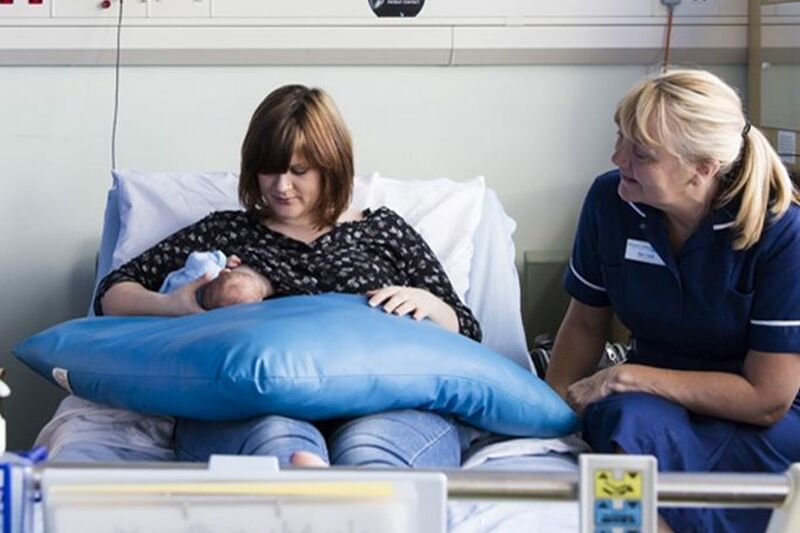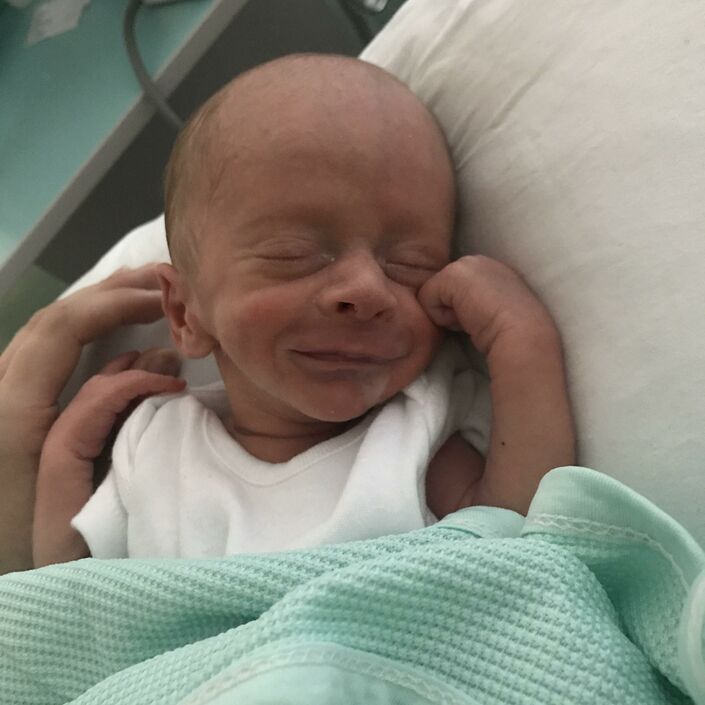Breastfeeding has lots of benefits for you and your baby. As well as the health benefits of breast milk for your baby, breastfeeding is a good way to have skin-to-skin contact with your baby, which can help you and your baby to get to know each other.
Your baby may not be ready to breastfeed as soon as they are born. They may not be well enough or strong enough to breastfeed. Some babies who are born at term and sick may find it more difficult to breastfeed because of surgery or difficulties swallowing. Some babies with breathing or heart problems may also have difficulties coordinating breathing and feeding.
If your baby is very premature or sick, they may have to be fed using parenteral nutrition (PN) and/or tube feeding before they are well enough to breastfeed. We have more information about the signs a baby being tube fed may show if they are ready for breast or bottle feeding.
You can still provide breast milk for your baby if they are unable to breastfeed by using a technique called expressing. We have more information about expressing.
Sometimes premature babies need more nutrients than you can provide in your breast milk. If this is the case, your baby’s doctor may prescribe a breast milk fortifier (which is usually a powder made from cow’s milk) which can be added to breast milk. This can help with growth and bone development.
Some parents may feed their baby through a combination of breastfeeding and bottle feeding. This is often known as mixed or combination feeding. It is recommended that your baby, if possible, establishes breastfeeding before introducing another type of feeding. Combination feeding may be used if there are problems with breastfeeding, such as there not being enough breastmilk, or for other reasons. If you are thinking about mixed or combination feeding, talk to your neonatal team, feeding specialist, midwife, health visitor or GP.
Staff on the neonatal unit may recommend that your baby is fed your breast milk using cup feeding. They might suggest this if your baby is looking to feed but cannot latch onto the breast or is separated from the mother for any reason. If you are unsure, speak to the staff on the neonatal unit.
If you decide not to or are unable to breastfeed your baby, it is very important that you are given information about the other options that are available. Your baby can still get many benefits of breastmilk if you express. Talk to your midwife, neonatal nurse or health visitor about how you are feeling and how they can support you.
The let-down reflex
Each time you breastfeed your baby, you may notice tingling or prickling in your breasts and nipples, or a feeling as if the milk is rushing in to fill them. This is called the let-down reflex (it is sometimes called the milk ejection reflex). During the let-down reflex, a hormone called oxytocin is released, which helps with milk flow. At first, this takes a few minutes to be released, but later it will happen within a few seconds.
The let-down reflex can feel different to everyone. Some people describe a slight pain and some have no sensations at all. Your body may respond to certain things you do, which can trigger your let-down reflex. For example, it is normal for the let-down reflex to happen in response to having a warm bath or shower, or to breast massage. It can also happen in response to being close to your baby, hearing your baby cry or having a picture or something close by that smells of them.
Staying as relaxed as possible and having skin-to-skin contact with your baby can all help to trigger the let-down reflex. Taking some deep breaths and concentrating on your breathing can also help.
How do I start to breastfeed my baby?
You may not know where to start with breastfeeding your baby, especially if your baby has previously been tube fed. A nurse, midwife or feeding specialist (such as an infant feeding coordinator) on the neonatal unit will be able to support you.
Both parents can be involved in breastfeeding, and other people close to you can also provide encouragement and support, such as grandparents. Having as much support as possible can help ensure that you continue to breastfeed when you go home from the neonatal unit. It might be helpful to talk about how you are going to approach breastfeeding with your partner, and how they can best support you.
The NHS website has more information about how partners can support breastfeeding, and signposts to more support that is available.
It is important to recognise the signs that your baby is hungry (feeding cues) before breastfeeding. Early feeding cues might include putting their fingers into their mouth, making sucking motions (rooting) and becoming restless.
What breastfeeding positions should I try?
When you are on the neonatal unit, a healthcare professional such as a neonatal nurse or midwife should support you to try to breastfeed your baby. They will help you to find feeding positions that are most comfortable for you. There are positions that may be more suitable for mothers who have had surgery, or whose baby was born premature or sick. Unit staff may recommend that you use pillows to support your arms or back.
If you have twins or multiples, you may also need more support with pillows when feeding, so that you are more comfortable and your babies are supported. Some mothers benefit from a hard pillow that ties at the back or a sling. It can be daunting at first to hold multiple babies at once, but staff in the neonatal unit will help with this.
Twins Trust have some more information about breastfeeding multiples that you may find useful.



